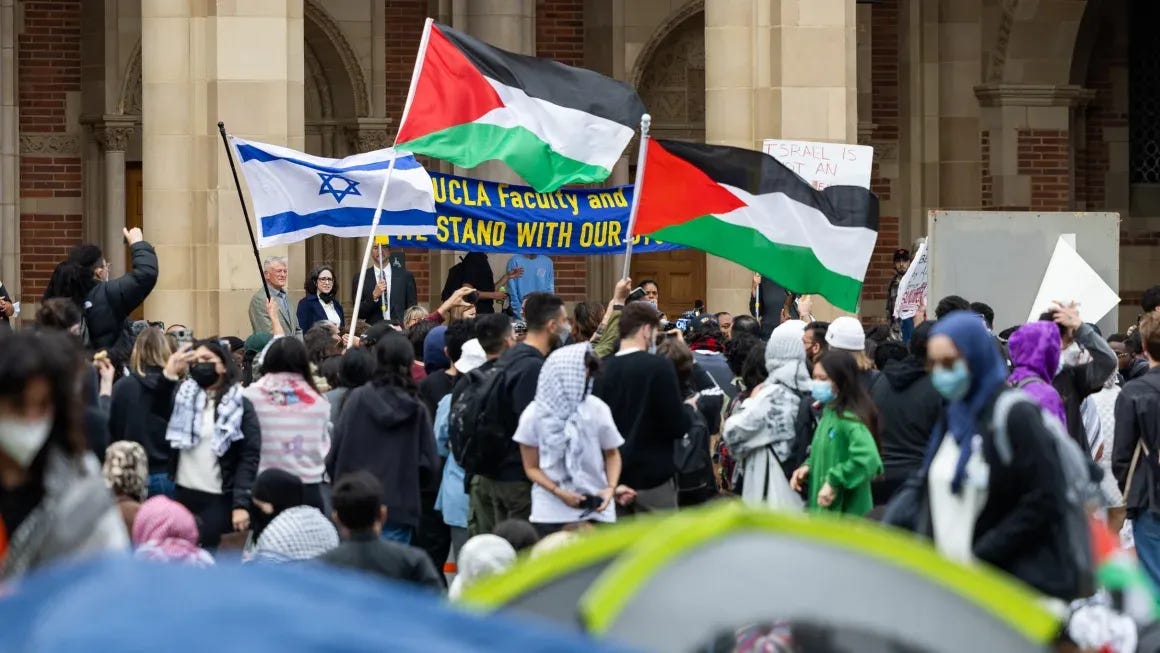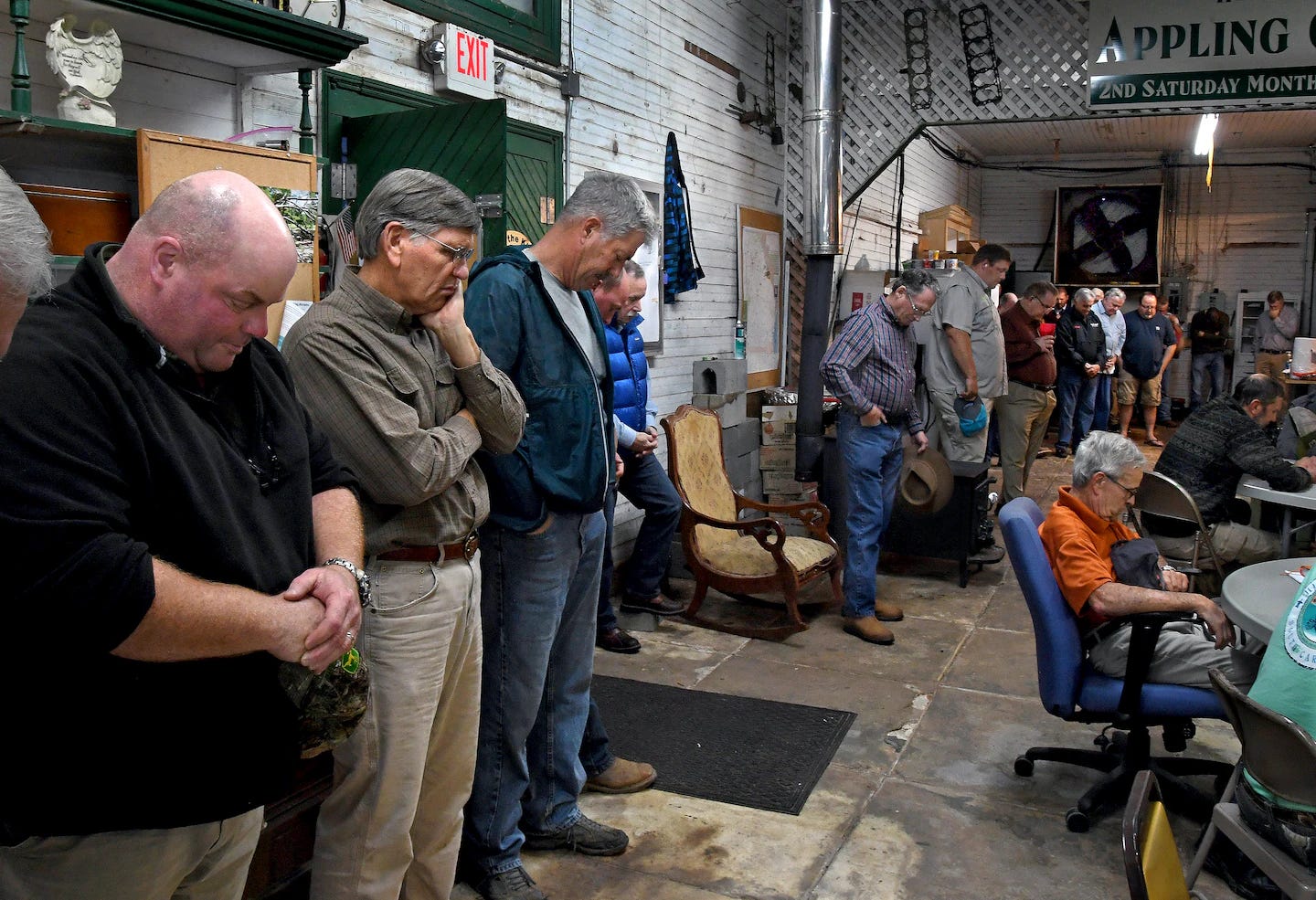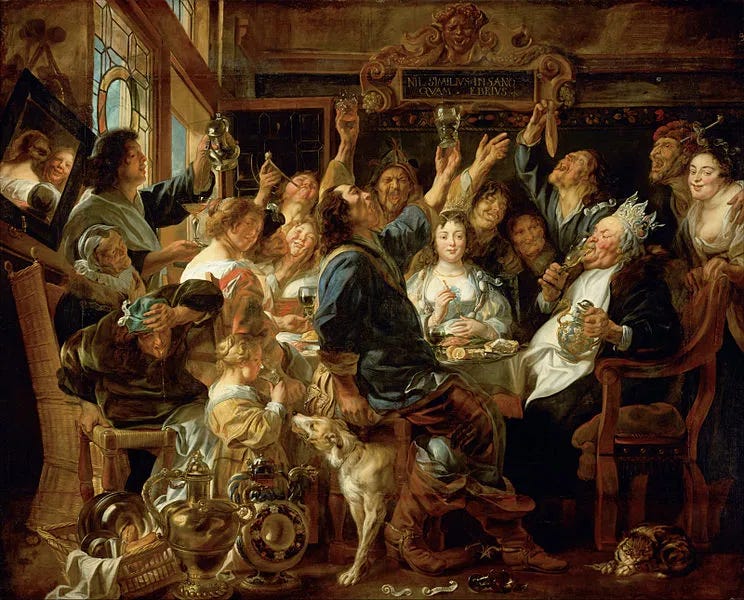A Second Chance for Universities
For FAIR’s Substack, Beri Tamsen of Braver Angels writes about how by creating and enforcing policies that protect free speech, universities can meet the current moment with the maturity it demands.
Imagine if university leadership and faculty members let go of their fears and instead created open spaces for students to discuss heavy, complicated issues. If they had done that years ago, maybe it could have mitigated the cataclysmic firestorm that erupted after October 7th. Instead, they gave way to conflict avoidance. Unaddressed tensions escalated into volatile protests. These demonstrations were characterized by student and faculty arrests and the cancellation of university commencements. Moderated student-led discussions have the power to encourage the respectful exchange of diverse viewpoints. Such dialogue could evolve into town halls—an alternative form of public demonstration. Unlike protests, town halls do not pit one side against the other, but foster public community debate aimed at finding common ground. This approach creates a safer space to practice free speech. It also builds trust and bridges divides among groups, laying the groundwork for peacebuilding and coexistence.
For his Substack, Man of Steele, Eli Steele shares his conversation with with FAIR Executive Director Monica Harris and FAIR Arts Fellow Ildi Tillmann about ideology in education. He also shares his recent X thread about what Leon Bass witnessed at Buchenwald.
Daryl Davis on Befriending the Klan | The Good Fight with Yascha Mounk
For The Good Fight with Yascha Mounk, FAIR Advisor Daryl Davis discusses how a childhood experience with racism inspired him to interview and befriend members of the Ku Klux Klan; the importance of remaining “pro-human” even in the face of hatred and bigotry; and whether his faith in humanity feels out of tune with the current political moment.
‘When men become less critical to a society’s security, masculinity takes a hit’
From suicide rates to life expectancy to labor participation, men are clearly in trouble. But the crisis runs deeper than the numbers suggest. What are its roots, and how can we address them? For The Washington Post’s Impromptu podcast, FAIR Advisor Shadi Hamid and Theodore Johnson talk with Richard Reeves, founder of the American Institute for Boys and Men, about a hopeful way out.
Why We Need to Talk About Shiloh
For her Substack BROADVIEW, FAIR Advisor Lisa Selin Davis writes about Shiloh Jolie-Pitt’s public “transition” over the past few years.
In a perfect world, girls like Shiloh wouldn’t have to surrender their masculinity, ever—but would feel free to if they wanted to. Nor would a feminine boy ever need to suppress that part of himself. In a perfect world, what kind of body you have, male or female, wouldn’t have to be inextricably associated with certain toys or colors or personality traits. In a perfect world, Shiloh’s choice of suits or ballgowns wouldn’t be news. But we haven’t yet done the cultural experiment of deemphasizing gender, curbing the messages that tell kids there is one set of colors, toys, personality traits and activities for boys and another for girls, and to access them you either must be born into that category or transition into it.
Diversity Won't Make Your Company More (Or Less) Productive
For Persuasion, Zaid Jilani writes about a new study that shows when it comes to performance, there isn’t much to either fear or to gain from diversifying.
The lesson from Walrich’s meta-analysis is that maybe we should all take a deep breath and stop promoting diversity as either a cure-all or a civilizational disaster. There are upsides and downsides to having more diversity—whether it means racial diversity, age diversity, gender, or other kinds.
But the good news is that they all tend to sort of balance each other out, and that maybe we should be more focused on making sure everyone has access to good opportunities and supporting them when they are able to land those roles than fixating on creating a particular gender or race mix.
Living by virtuous lies: On the "racism" of the SAT
For Unsafe Science, Jacob L. Mackey writes about why claiming that the SATs are racist is a virtuous lie, and that eliminating the SATs from college admissions is likely to do more harm than good to the intended beneficiaries of such polices.
In sum, it's a virtuous lie that SATs are racist. This lie—this false claim—underwrites the "luxury belief"—the normative demand—that SATs should be dropped. But dropping the SAT is, as we saw, not likely to help already disadvantaged students. I’ll give Rob Henderson—the child of a Korean immigrant mother and a Hispanic father and who grew up in foster homes and poverty before finding his way to Yale—the last word on the luxury belief of dropping the SAT. He points out that “[t]he objectivity of scores can serve as a useful corrective to the subjective nature” of evaluations given by teachers. Henderson himself was a C+ student in high school, but when he took an Armed Services Vocational Aptitude Battery (ASVAB), he scored as well as a straight-A classmate. The standardized test revealed to him an academic potential that he had been unaware he had.
FAIR News Podcast
For audio versions of our FAIR News and FAIR Weekly Roundup newsletters, subscribe and listen to FAIR News Weekly on Apple Podcasts, Spotify, Google Podcasts, or via RSS feed.
Join the FAIR Community
Join us, and become a member of FAIR.
Become a FAIR volunteer, or join a FAIR chapter.
Sign-up for a Welcome to FAIR Zoom information session to learn more about our mission.
Share your reviews and incident reports on our FAIR Transparency website.












After reading an essay written by a young woman’s experience in primary school…
https://open.substack.com/pub/thecoddlingmovie/p/why-do-you-only-write-about-gay-men?r=ub7jx&utm_medium=ios
And reading and listening to a lot of articles and books about the introduction of Critical Theory/Pedagogy in higher education, which lead to it becoming part of primary school curriculum (not being taught as a subject but it being implemented as a teaching practice)…
https://www.itsnotinschools.com/
It is so obvious to me why boys are doing so poorly these days as well as all the other social problems we are witnessing.
The practice of Critical Pedagogy in schools is the MAIN reason we are seeing the rise of social breakdown in our society. Social breakdown IS THE GOAL!
We continue to focus on the symptoms of this absolutely disastrous change in education while ignoring the cause at large.
Take any of the major societal issues today such as the troubles boys are having, ROGD, increased racial tensions, the lack of family formation and the inability of young people to find a partner, to name a few and you can see the direct impact Critical Pedagogy has had on our society.
We really need to focus on the source of the problem and remove this poison for our public institutions.
Came across this program at Gettysburg College that looks promising, if implemented well: https://www.gettysburg.edu/about-the-college/conversations-for-change/